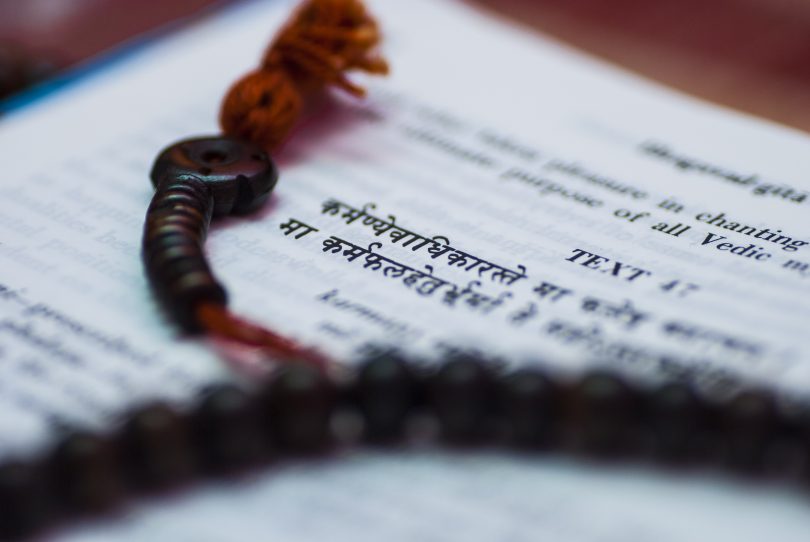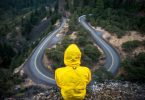In the previous chapter, Krishna revealed the secret of controlling lust, our eternal formidable enemy – knowing oneself to be superior to the intelligence, one should steady the lower self [the mind] by the higher self [the soul that is connected to its source] and thus conquer lust. The connection that the higher self makes with the conscious source of its existence is what Krishna refers to as the imperishable process of yoga in the beginning of chapter 4.
Krishna (aham) instructed (proktavān) this (imaṁ) imperishable (avyayam) yoga (yogaṁ) to the sun-god, Vivasvān (vivasvate); Vivasvān (vivasvān) instructed it (prāha) to the father of humankind, Manu (manave), and Manu (manur) instructed it (abravīt) to Ikṣvāku (ikṣvākave). (BG 4.1) The saintly kings (rājarṣayo) learned (viduḥ) this (imaṁ) as (evaṁ) received through the chain of disciplic succession (paramparā-prāptam). However, in course of time (kāleneha mahatā), that knowledge (sa) of divine connection or yoga (yogo) got lost (naṣṭaḥ). (BG 4.2) Therefore (eti), that (sa) very (evāyaṁ) ancient yoga (yogaḥ purātanaḥ) – indeed (hy) this (etad) supreme mystery (rahasyaṁ uttamam) – is now (adya) taught (proktaḥ) by Krishna (mayā) to Arjuna (te) for Arjuna is Krishna’s devotee and friend (bhakto ’si me sakhā ca). (BG 4.3)
True knowledge means to know things as they are.
There are three ways to receive knowledge: direct sense perception, logical inference, and revealing sound vibration. The first two are generally considered faulty because our senses have limitations and imperfections. Four well-known human frailties (imperfection of the senses, susceptibility to falling into illusion, susceptibility to committing mistakes, and cheating propensities) disqualify us from becoming the generators of true knowledge. Lord Krishna establishes the revealing sound vibration (i.e., a pure transmission of knowledge from a qualified teacher to a qualified student through sound) as the recommended process for receiving true knowledge (BG 4.2).
Three conditions must be satisfied for us to receive knowledge in its true unadulterated form:
- [BG 4.1] Knowledge is perfect when it originates from the Supreme Source of our existence (Lord Krishna identifies Himself to be the ultimate source in BG 10.8). Krishna first taught the science of Bhagavad Gita to the Sun God.
- [BG 4.2] Knowledge must be preserved by a chain of bona fide disciplic succession (paramparā). The integrity of the Bhagavad Gita has been preserved by the saintly characteristics of every representative of the disciplic succession.
- [BG 4.3] We need to have two qualities to receive the knowledge in its unadulterated form: (1) we must be striving to be a devotee (bhaktaḥ), and (2) we must have a non-envious disposition toward Krishna and His message (sakhā).
Arjuna asks Krishna a logical question: “Your (bhavato) birth (janma) is later (aparaṁ) and the birth (janma) of Sun God [Vivasvan] (vivasvataḥ) is earlier (paraṁ). How (katham) shall I understand (vijānīyāṁ) that (etad) You (tvam) taught (proktavān) this (iti) first (ādau)?” (BG 4.4)
Krishna will reveal His divinity for the first time in response to this question.







